- Im using next.js auth0 and a custom golang api backend and I'm having trouble getting the decoded token on the backend side.
- On the frontend side I followed this tutorial - https://auth0.com/docs/quickstart/webapp/nextjs/01-login
- and I managed to send the accessToken to my backend API successfully
- on the backend side I followed this tutorial - https://auth0.com/docs/quickstart/backend/golang/01-authorization
- The middleware has successfully verified the token
Example middleware from auth0 implementation
func EnsureValidToken(next http.Handler) http.Handler {
// EnsureValidToken is a middleware that will check the validity of our JWT.
err := godotenv.Load()
if err != nil {
log.Fatal("Error loading .env file")
}
issuerURL, err := url.Parse("https://" + os.Getenv("AUTH0_DOMAIN") + "/")
if err != nil {
log.Fatalf("Failed to parse the issuer url: %v", err)
}
provider := jwks.NewCachingProvider(issuerURL, 5*time.Minute)
jwtValidator, err := validator.New(
provider.KeyFunc,
validator.RS256,
issuerURL.String(),
[]string{os.Getenv("AUTH0_AUDIENCE")},
validator.WithCustomClaims(
func() validator.CustomClaims {
return &CustomClaims{}
},
),
validator.WithAllowedClockSkew(time.Minute),
)
if err != nil {
log.Fatalf("Failed to set up the jwt validator")
}
errorHandler := func(w http.ResponseWriter, r *http.Request, err error) {
log.Printf("Encountered error while validating JWT: %v", err)
w.Header().Set("Content-Type", "application/json")
w.WriteHeader(http.StatusUnauthorized)
w.Write([]byte(`{"message":"Failed to validate JWT."}`))
}
middleware := jwtmiddleware.New(
jwtValidator.ValidateToken,
jwtmiddleware.WithErrorHandler(errorHandler),
)
return middleware.CheckJWT(next)
}
I'm using https://docs.gofiber.io/ to handle the HTTP methods
Main function
func main() {
// This is to translate the net/http -> fiber http
var ensureValidToken = adaptor.HTTPMiddleware(EnsureValidToken)
app := fiber.New()
app.Use(cors.New())
app.Use(logger.New())
// routes
app.Use(ensureValidToken)
app.Get("/api/books", getAll)
app.Listen(":8080")
}
func getAll(c *fiber.Ctx) error {
token := c.Context().Value(jwtmiddleware.ContextKey{}).(*validator.ValidatedClaims)
// The above code will always panic, I'm assuming that it already stored in the context since it passes the validation
}
Panic example
panic: interface conversion: interface {} is nil, not *validator.ValidatedClaims
I dig deeper into the auth0 golang implementation, it does store in the context, I think the translation between http.Request to fiber HTTP failed
r = r.Clone(context.WithValue(r.Context(), ContextKey{}, validToken))
